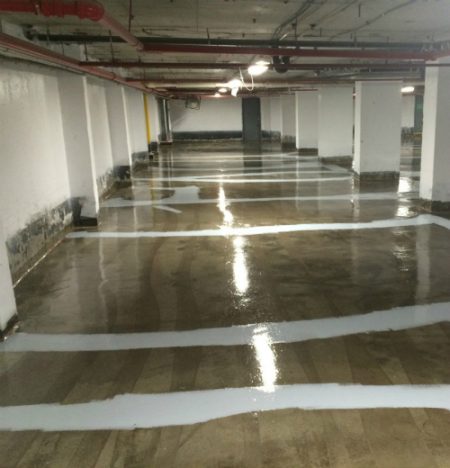On a list of big-ticket items, few property expenses stand out more than a parking garage restoration. All the more reason, then, for managers and owners to consider their options and ensure they are taking the right approach before breaking ground.
“Repair or upgrades to underground parking garages can be a massive undertaking, and we regularly see certain aspects of these projects that are commonly overlooked or not fully considered,” says Michael Pond, Principal, Building Science and Restoration with RJC Engineers (RJC).
Certainly, it pays to have a solid plan before heading below. Here are some considerations to keep in mind.
Get the real numbers
It’s common for property stakeholders to rely on a reserve fund study to budget for parking garage work. Yet while that study can provide a ballpark figure, a more comprehensive condition survey will reveal the true anticipated cost.
“A lot more goes into evaluating a parking garage that doesn’t get covered by reserve fund studies,” says Pond. “Those are helpful for planning, but they typically don’t give provide stakeholders with the level of detail you need.”
Moreover, specialists who conduct reserve fund studies don’t often have the time or resources to capture the true condition of every property component. However, with a more detailed and comprehensive review one can obtain a clearer idea of what work is required and how much money to budget.
“The number on a reserve fund study can vary wildly and open property managers and owners up to extra expenses, whereas a comprehensive survey gives you the granular detail to create accurate tendering drawings and specs that are geared toward the current condition,” adds Pond, noting, “That way, when you go to tender the work, you know exactly what you’re looking for.”
 Plan for overages
Plan for overages
You know what they say about planning for the unpredictable? The same rings true for any major renovation, repair or retrofit. That’s why it’s best practice to add extra room in a project’s budget to accommodate for any surprises.
“We often recommend clients carry a 10% contingency allowance for this type of work in order to handle any unforeseen conditions that may arise,” Pond offers.
Time your tendering
There are good times and costly times to tender a parking structure project. Around mid-summer, for example, most contractors will already have their year planned out and be busy with current projects. As such, it’s likely their quotes won’t be favourable.
In the winter, on the other hand, is when contractors are planning their next year and want to keep seasonal workers on the payroll. That can make a weather-proof project like a parking garage restoration more appealing, leading to more competitive bids.
Overall, Pond suggests: “Whenever possible, our advice is to tender late in the calendar year or early the following year when everyone is trying to secure next year’s work. For example, tendering in January and doing the work in August is better than tendering in July and doing the work in August.”
Have a phasing plan
When it comes to working down below, remember to phase the work accordingly and consider the full impact of the restoration on all building occupants.
“You’re likely going to need to shift cars around or find some limited offsite parking, so having a phasing plan in place from the beginning is important,” says Pond, adding that it’s equally important to remember that work on one floor of parking garage can affect the one below. “If you have a multi-level underground parking garage and you want to do concrete repairs and replace waterproofing system on P1, for instance, you have to close the P2 level because you’re going to be dropping concrete and removing protection for the cars below.”
Stay vigilant
No matter how old (or young) your parking garage is, it’s a good practice to routinely assess its condition.
“You want to keep up on maintenance and inspections, and that includes getting your parking garage assessed by a structural engineer on a regular basis,” says Pond. “If you let that maintenance work slide, or you just fix it and forget it for years, you’ll be opening up your tenants and residents to safety risks.”
Parking garage restorations are never cheap. With solid planning, accurate budgeting, and ongoing oversight, you’ll be setting the foundation for a smart investment.
Michael Pond is Principal of Building Science and Restoration with RJC Engineers. Learn more at www.rjc.ca.





